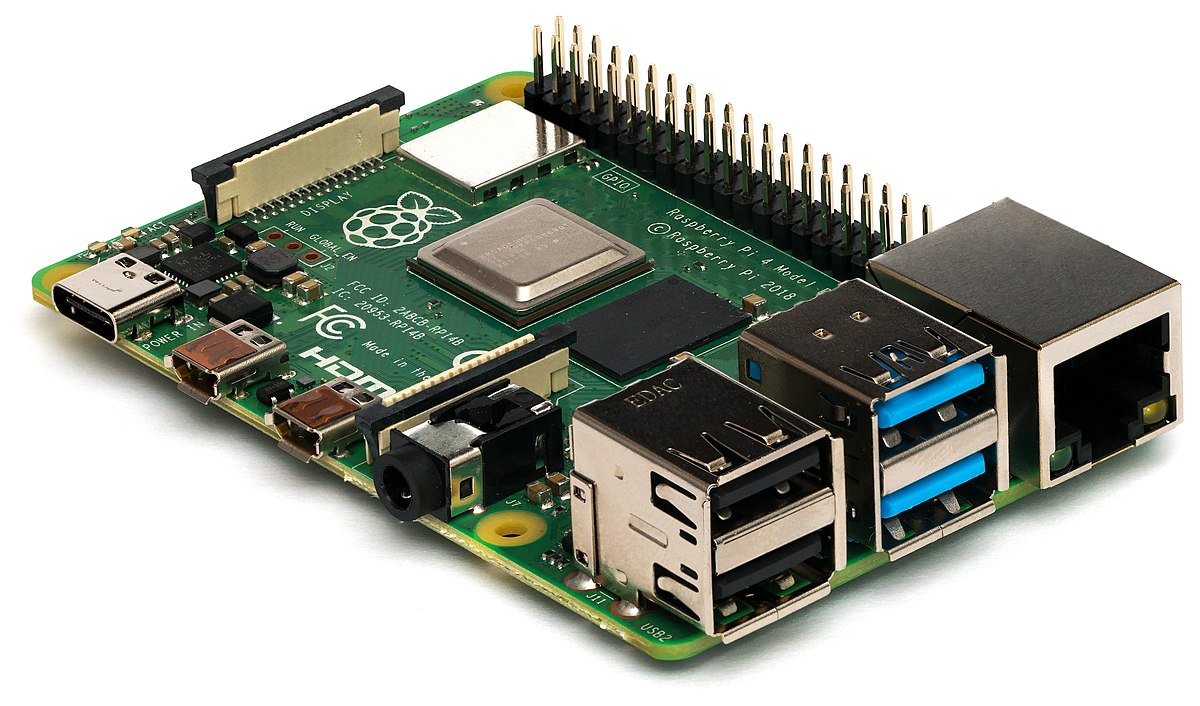In the current climatic context, the importance of an accurate rain measurement system is indispensable for various sectors and activities, playing a critical role in water resource management, flood prediction, weather forecasting, agriculture, climate research, environmental monitoring, infrastructure planning and hydrological studies.There are Many efforts to attain accurate precipitation monitoring and analysis.This project is an attempt to estimate precipitation using davis tipping bucket rain sensor and raspberry pi-4.
- Davis AeroCone 6466M is the mechanical raingauge.
- Raspberry Pi 4 model B as a DAQ device for processing and storing data from davis mechanical raingauge.
Raspberry pi GPIO 13 and GND pins are connected to two wires from read switch of davis mechanical rain gauge.Raspberry pi is powered by a 5v,15ah lithium-ion battery pack.a 100w solar panel with charge controller is used for recharging.Data collection is achieved by connecting raspberry-pi with a nearby internet router using wifi or ethernet cable.
Install RPi.GPIO library in raspberry-pi for detecting interrupts.
pip install RPi.GPIOInstall influxdb python client library in raspberry-pi for writing data to influxDB.
pip install influxdb-clientPaste script.py in raspberry pi and add credential of your influxDB database to function 'influxdb()' in script.py
for more details about influxDB setup visit https://docs.influxdata.com/influxdb/v2/get-started/setup/
for visualization of data setup grafana dashboard.
for more details : https://grafana.com/docs/grafana/latest/setup-grafana/installation/
setup your influxdb bucket as data source in grafana and paste the query from docs/query.txt or query generated in your influxdb
Run script.py
python3 script.pyif there is an error check docs/setup_guide.md
GPIO pin 13 of the Raspberry Pi is set in a pulled-up condition by default,achieved through internal resistors and built-in software functions.when there is a tipping action(closing read switch) in davis rain gauge,GPIO 13 pin change it's state from high to low.python code will detect this interrupt (rising edge of interrupt signal) and count it.A bouncing delay of 50ms is added to mitigate switch bouncing issues.In every 5 minutes interval the count will convert into amount of rainfall.The rainfall data will store in influxdb and as csv file along with time stamping in raspberry-pi. Data stored in rasberry pi can be accessed by ssh protocol if we unabled ssh service in raspberry-pi. visualization of data is possible using grafana.
This rain gauge has the following limitations.
- Accuracy: Tipping bucket rain gauges may not always provide accurate measurements, especially during heavy rainfall events or in windy conditions. Splashing or wind-driven rain can lead to inaccuracies in measurement.
- Underestimation of Intense Rainfall: During intense rainfall, the tipping bucket mechanism may not be able to keep up with the rapid influx of water, leading to underestimation of rainfall amounts.
- Evaporation Losses: Tipping bucket rain gauges are susceptible to evaporation losses, especially in warm and windy conditions.
- Maintenance Requirements: Tipping bucket rain gauges require regular maintenance to ensure accurate measurement.
- Freezing and Snow Accumulation: In cold climates, freezing temperatures and snow accumulation can interfere with the operation of tipping bucket rain gauges.
Despite these limitations, tipping bucket rain gauges remain valuable tools for monitoring rainfall in many applications
The bouncing time delay (50ms)provided in the program may result in errors in counting(ie,when switch is in a closed condition for more than 50ms).possibility of this error need to be examined and resolved.
- Data logging must be structured based on days,hour for easy accessing data.
- add provision to load influxDB credentials from yaml file
- edit readme
- add influxdb and grafana in picture
- specify prerequisites
- give information about power supply
why raspberry pi is choosed instead of other boards as DAQ: our icfoss R&D team was working on a acoustic rain gauge using machine learning technology.machine learning model was teached by comparing data collected from acoustic DAQ setup and davis mechanical rain guage.Both data gathering setup were using arduino as processing unit.but sampling rate of arduino was not enough for training ML model,To compensate the issue we switched our sound data gathering system to raspberry pi-4 which can provide high sampling rate compared to arduino.inorder to make data comparison easy and to resolve issues related to timestamping, davis rain gauge is also moved to raspberry pi DAQ.




